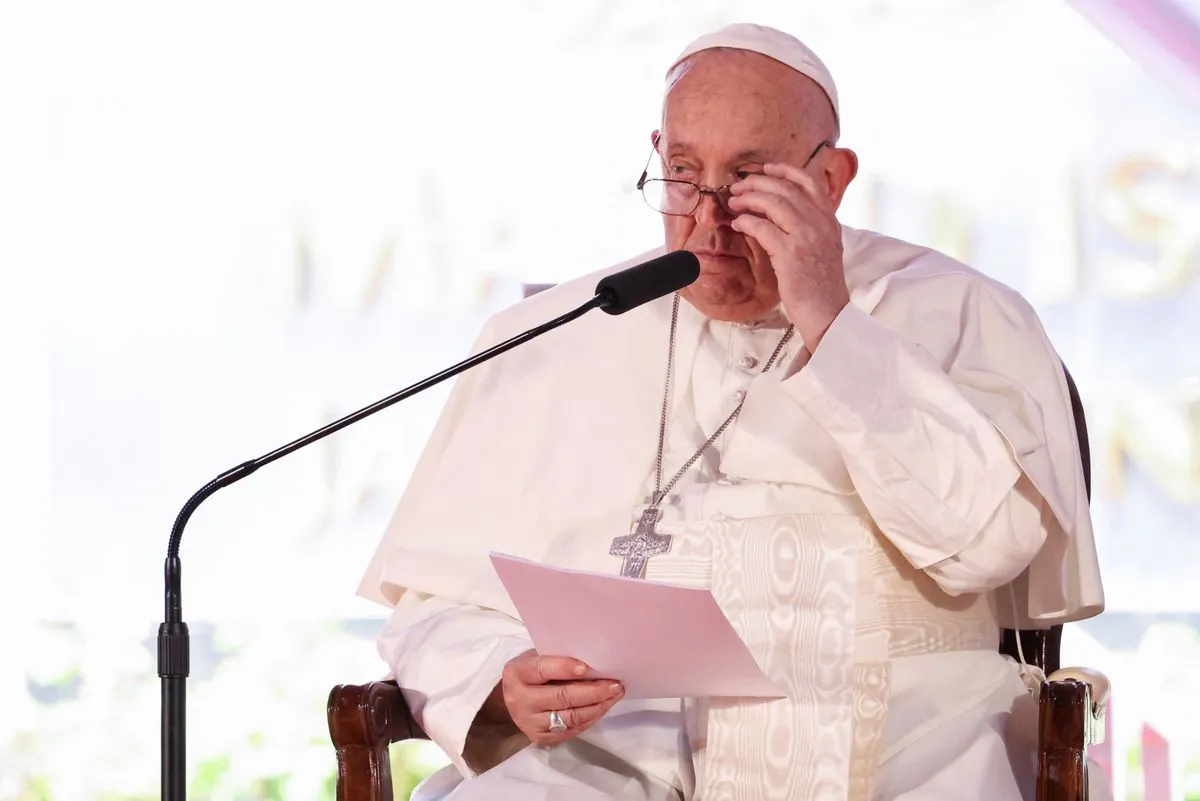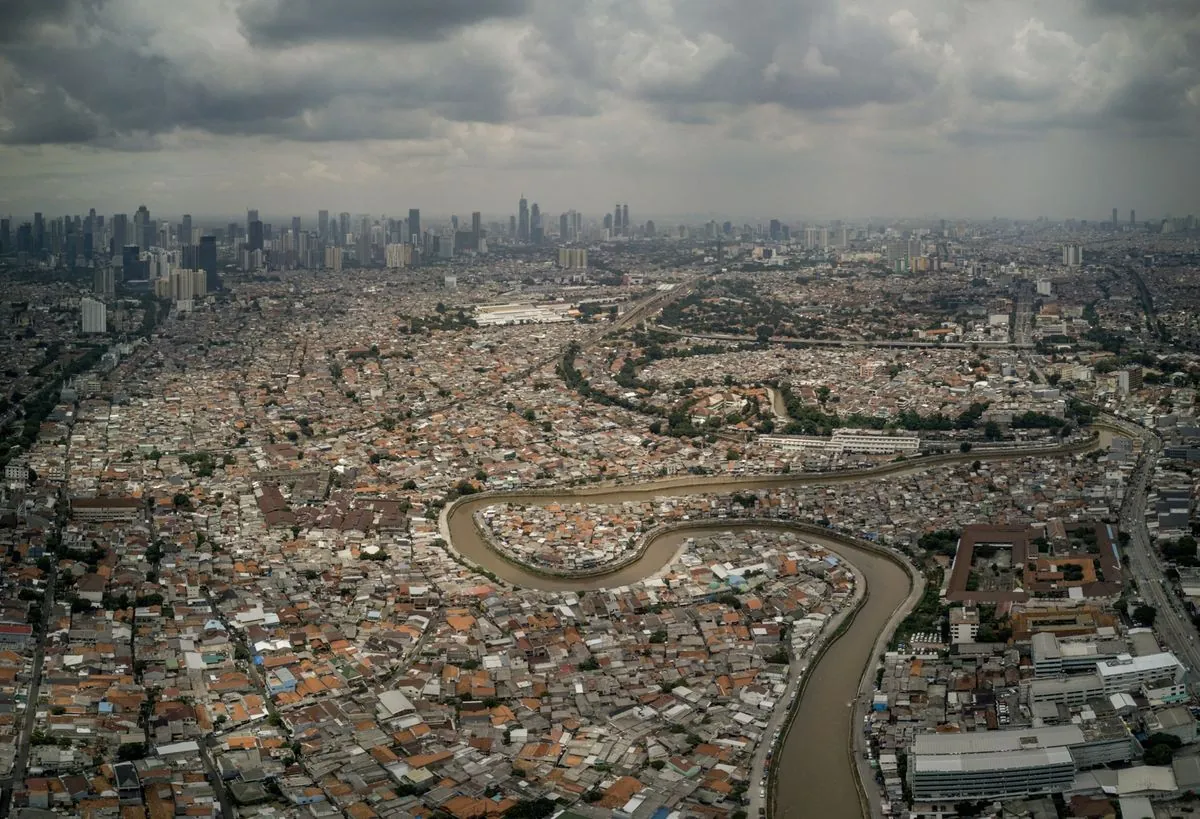Pope Francis Unites Faiths in Indonesia, Addressing Climate Crisis
Pope Francis visits Indonesia, issuing a joint declaration with Muslim leaders on climate action. His visit to Southeast Asia's largest mosque emphasizes interfaith dialogue and common religious roots.

Pope Francis embarked on a significant visit to Indonesia, the world's largest Muslim-majority nation, on September 5, 2024. This journey marks a crucial step in interfaith dialogue and environmental advocacy.
The pontiff's visit to Jakarta's Istiqlal Mosque, the largest in Southeast Asia, symbolized unity among different faiths. During this visit, Francis and Grand Imam Nasaruddin Umar issued a joint declaration addressing climate change and extremism. The statement emphasized the urgent need for action to protect the environment, highlighting the destructive consequences of human exploitation of natural resources.
"We sincerely call on all people of good will to take decisive action in order to maintain the integrity of the natural environment and its resources."
This collaborative effort underscores the growing recognition of climate change as a global concern transcending religious boundaries. Indonesia, an archipelagic nation comprising over 17,000 islands, is particularly vulnerable to the impacts of climate change, with its capital Jakarta facing chronic flooding and land subsidence.

The Pope's visit also highlighted the unique "tunnel of friendship" connecting the Istiqlal Mosque to Jakarta's Catholic cathedral. This 28-meter underground passage serves as a powerful symbol of interfaith harmony. Francis described it as an "eloquent sign" of the shared roots among different beliefs, emphasizing that all religions share a common quest for the divine.
Indonesia's religious diversity is reflected in its recognition of six official religions: Islam, Protestantism, Catholicism, Hinduism, Buddhism, and Confucianism. With Muslims comprising 87% of its 280 million population and Catholics representing 3%, the country stands as a testament to religious coexistence.
The Pope's itinerary includes celebrating Mass at Jakarta's Gelora Bung Karno Stadium, one of the world's largest stadiums. In a gesture of respect, Indonesia's religious affairs minister suggested local broadcasters suspend the daily afternoon Muslim call to prayer during the Mass.
This visit is part of Francis' ambitious 12-day journey across Southeast Asia and Oceania, covering nearly 33,000 kilometers. The tour, which includes stops in Papua New Guinea, East Timor, and Singapore, reflects the Pope's commitment to global outreach and interfaith dialogue.
Throughout his papacy, Francis has consistently emphasized Catholic-Muslim dialogue and environmental protection. His efforts include signing a declaration with the Grand Imam of Al-Azhar in 2019 and advocating for the 2015 Paris climate pact.
As Indonesia grapples with the challenges of climate change, including the construction of a new capital city, Nusantara, on the island of Borneo, the Pope's visit serves as a reminder of the global nature of these issues and the importance of interfaith cooperation in addressing them.


































